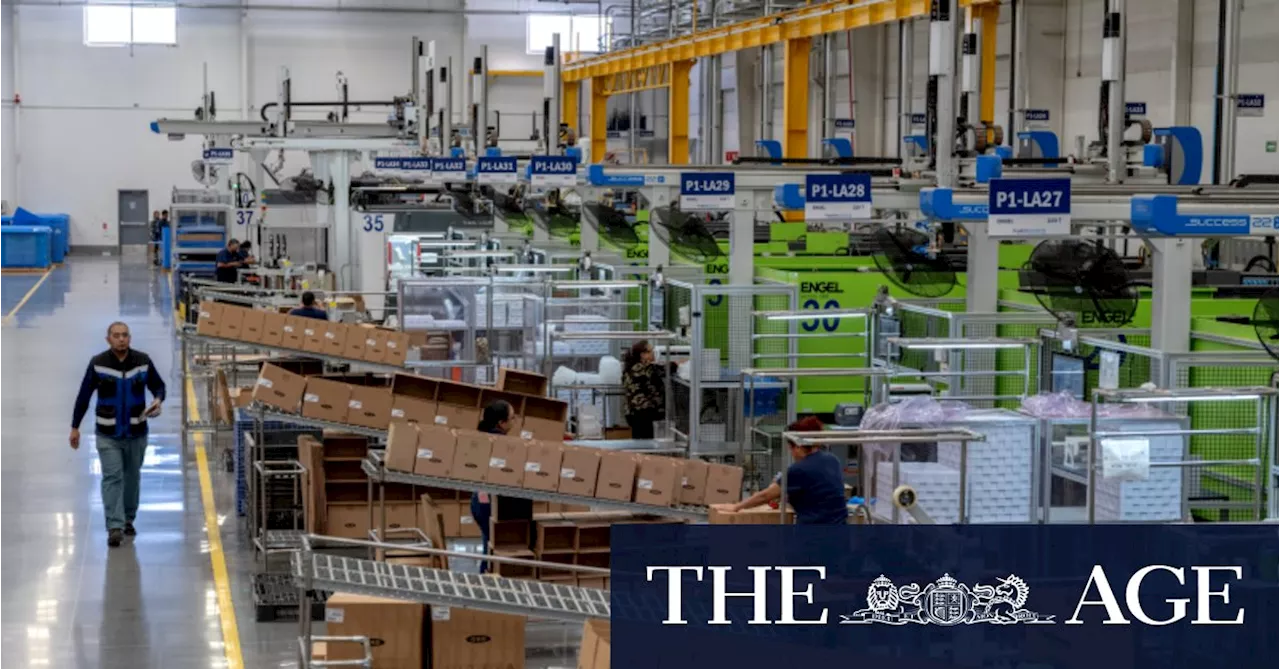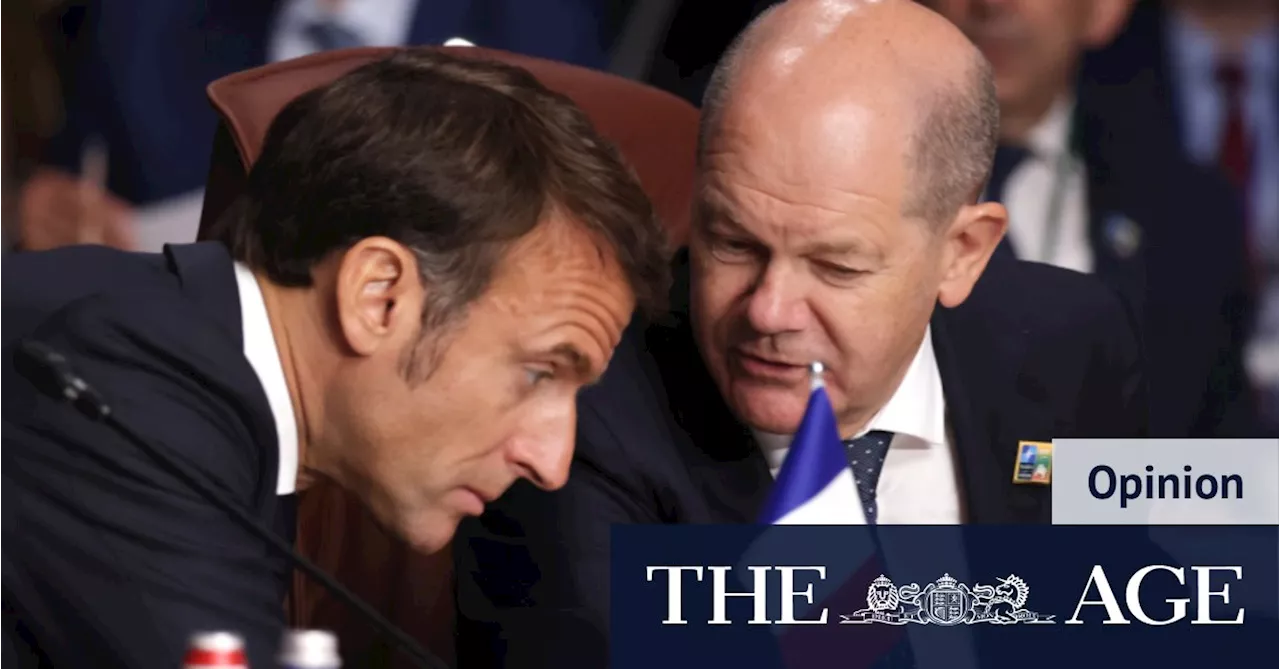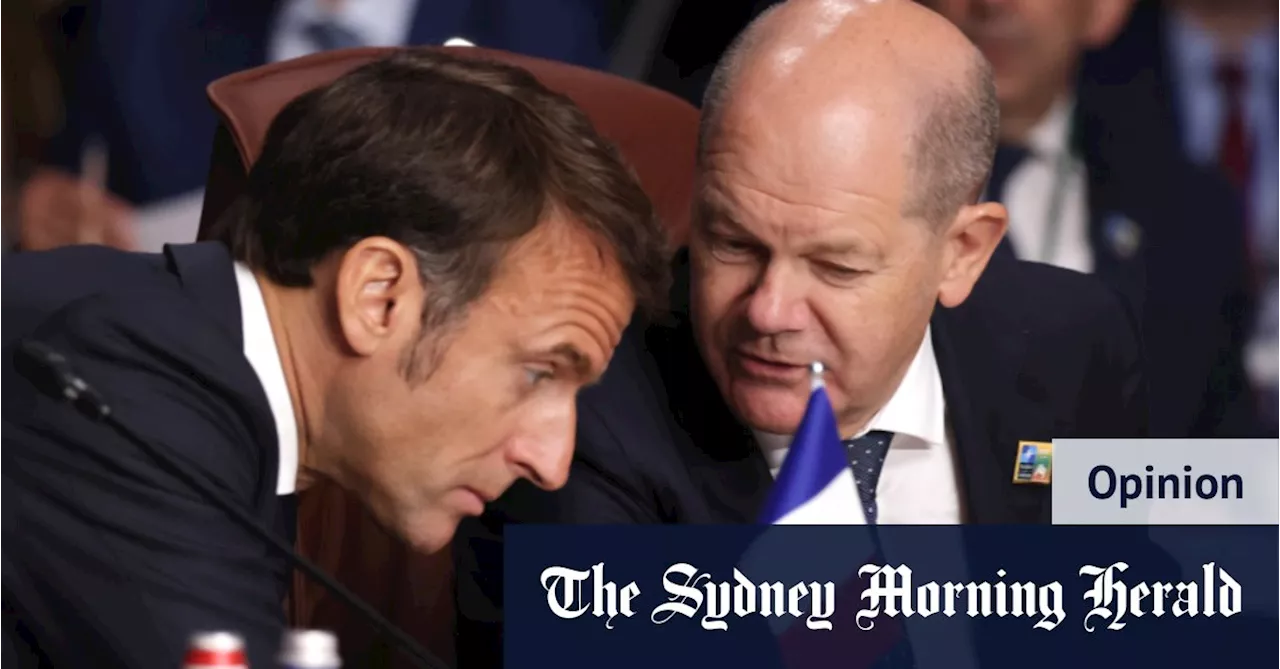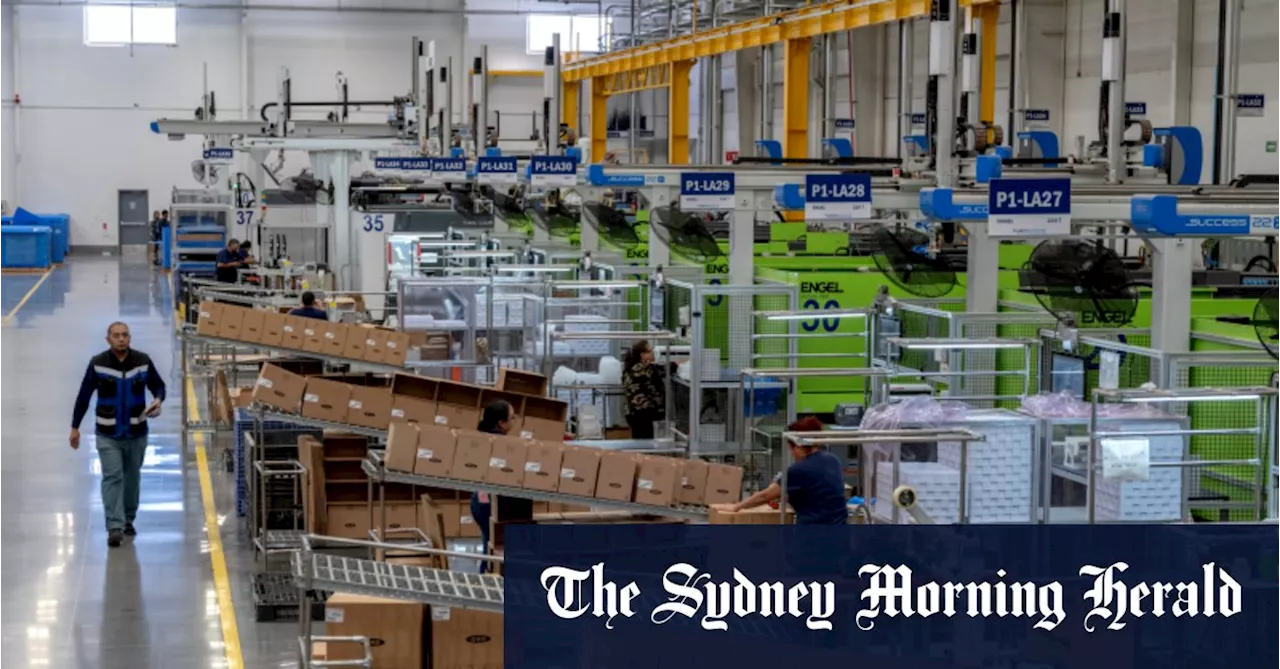The potential return of Donald Trump to the White House brings uncertainty for Mexico's manufacturing sector, particularly those benefiting from 'nearshoring'. Trump's past tariffs on China incentivized companies to relocate production to Mexico, a trend further strengthened by pandemic-related supply chain disruptions. However, Trump's recent threat to impose tariffs on goods from Mexico and Canada casts a shadow on this growth, raising questions about the future of Mexican manufacturing and its impact on US consumers.
Like much of the Mexican business world, Daniel Córdova finds himself grappling with an enormous variable looming across the US border: the imminent return of Donald Trump to the White House. Córdova oversees a factory outside the city of Monterrey that makes heating and air-conditioning units for Trane, an American company. The first time Trump was president, he unleashed a trade war against China that proved beneficial to Mexican industry.
Companies that relied on Chinese factories to make goods for the American market shifted production to plants in Mexico to avoid Trump’s tariffs. Monterrey in Mexico, which has emerged as an attractive manufacturing hub for US-focused companies as tariffs on Chinese imports and pandemic shipping costs highlighted overseas risks.That trend, known as “nearshoring,” gained momentum as President Joe Biden extended tariffs on Chinese imports. Soaring shipping prices during the pandemic heightened the pitfalls of relying on factories across oceans. For companies seeking to close the distance between plants in Asia and customers in the United States, Mexico beckoned as an attractive place to manufacture their wares. Then, in November, Trump threatened the economics of nearshoring by promising to impose 25 per cent tariffs on all goods entering the United States from Mexico and Canada. Mexican industry was confronted with a high-stakes question: Was Trump bluffing, hoping the threat would pressure the Mexican government to halt the movement of people and drugs towards the border? Or was he really preparing to put tariffs on Mexican imports to force companies to move production to the US? Hanging in the balance is the pace of investment and job growth in Mexico, along with the availability of a vast profusion of imported goods in the US — from fresh fruits and vegetables to car parts.At the Trane factory in the industrial enclave of Apodaca, Córdova is getting read
Mexico Manufacturing Trump Tariffs Nearshoring
United States Latest News, United States Headlines
Similar News:You can also read news stories similar to this one that we have collected from other news sources.
 Donald Trump's tariffs and inflation threaten record run-up in sharesShares have suffered heavy falls to end the trading week, and some economists say a trending change in markets could mean the rout is not over yet.
Donald Trump's tariffs and inflation threaten record run-up in sharesShares have suffered heavy falls to end the trading week, and some economists say a trending change in markets could mean the rout is not over yet.
Read more »
 ‘Trump hates China more’: Mexicans bet that Trump is bluffing on tariffsAs Donald Trump vows an expanded trade war, businesses in Mexico are continuing with factory expansions. They assume their country remains central to America’s goal to get less dependent on China.
‘Trump hates China more’: Mexicans bet that Trump is bluffing on tariffsAs Donald Trump vows an expanded trade war, businesses in Mexico are continuing with factory expansions. They assume their country remains central to America’s goal to get less dependent on China.
Read more »
 Even before Trump and his tariffs, Europe is in troubleThe timing couldn’t be worse. The fall of the French government and the collapse of Germany’s coalition government have left Europe even more vulnerable to a new trade war with America.
Even before Trump and his tariffs, Europe is in troubleThe timing couldn’t be worse. The fall of the French government and the collapse of Germany’s coalition government have left Europe even more vulnerable to a new trade war with America.
Read more »
 Even before Trump and his tariffs, Europe is in troubleThe timing couldn’t be worse. The fall of the French government and the collapse of Germany’s coalition government have left Europe even more vulnerable to a new trade war with America.
Even before Trump and his tariffs, Europe is in troubleThe timing couldn’t be worse. The fall of the French government and the collapse of Germany’s coalition government have left Europe even more vulnerable to a new trade war with America.
Read more »
 RBA will monitor Donald Trump's trade tariffs for inflation risk, says deputy governorIf Donald Trump's foreshadowed trade tariffs spark inflation, the Reserve Bank will be ready to act, says the deputy governor
RBA will monitor Donald Trump's trade tariffs for inflation risk, says deputy governorIf Donald Trump's foreshadowed trade tariffs spark inflation, the Reserve Bank will be ready to act, says the deputy governor
Read more »
 Trump and his picks threaten more lawsuits over critical coverageThe flurry of threatened defamation suits is the latest sign that the incoming Trump administration appears poised to do what it can to crack down on unfavourable media coverage.
Trump and his picks threaten more lawsuits over critical coverageThe flurry of threatened defamation suits is the latest sign that the incoming Trump administration appears poised to do what it can to crack down on unfavourable media coverage.
Read more »
